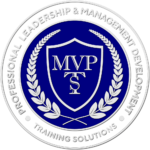A paradigm change is occurring in the field of leadership, with an emphasis on the idea that leadership is more about “how to be” than it is about “how to do.” While duties, procedures, and results are often the emphasis of conventional leadership models, modern leadership philosophies emphasize the importance of embodying certain traits and attributes. This change emphasizes the importance of leadership and calls on people to have a presence and way of thinking that motivates and inspires others. Leadership is essentially about living a set of beliefs and actions that are true and purposeful rather than merely carrying out chores.
Centered leadership on “how to be” promotes openness and sincerity. Authentic leaders connect with their people on a human level rather than just assigning duties and obligations. Leaders create an environment of openness that encourages trust and cooperation by being sincere and upfront about their own goals, shortcomings, and capabilities. Authenticity becomes potent when leaders connect with their people more deeply and inspire a shared commitment to corporate objectives.
Being a leader is more than simply a job; it represents your innermost beliefs. Leaders who emphasize “how to be” deliberately strive to live according to the principles that shape their identity personally and professionally. Integrity, empathy, and a dedication to ongoing development are some of the values that drive behavior and decision-making. Leaders who continuously exemplify these concepts create a culture of values inside their businesses, shaping their teams’ identity and behavior.
Genuine leadership goes beyond assigning responsibilities; it entails encouraging and motivating others by one’s own example. Leaders who strongly emphasize “how to be” know the benefits of setting an example. Leaders set an example for their teams by being resilient upbeat, and modeling the work ethic they demand of them, whether they are suffering difficulties or enjoying victories. This strategy creates an inspirational culture by motivating team members to model the traits that lead to individual and group success.
A key component of “how to be” leadership is emotional intelligence. A leader must be able to comprehend, control, and empathize with people’s emotions in order to lead effectively. Emotionally intelligent leaders create a welcoming and inclusive atmosphere where people feel heard, seen, and appreciated. This attitude improves communication, fortifies interpersonal bonds, and fosters a great workplace culture.
Leadership that emphasizes “how to be” understands that development is a process that never stops. Leaders dedicated to their own personal and professional growth encourage their staff to adopt a similar perspective. Leaders advance flexibility, creativity, and durability by cultivating an environment that values ongoing education. This dedication to expansion turns into a shared value that penetrates the company and puts it in a position to prosper in a constantly shifting commercial environment.
The focus on “how to be” in the development of leadership philosophies indicates a significant change in direction toward a more comprehensive and human-centric strategy. Leaders who prioritize being honest, empathetic, and values-driven understand that their impact goes far beyond the responsibilities they assign. In the end, good leadership is more about one’s character and influence on others under one’s direction than it is about what one does.
MVPTS STAFF
